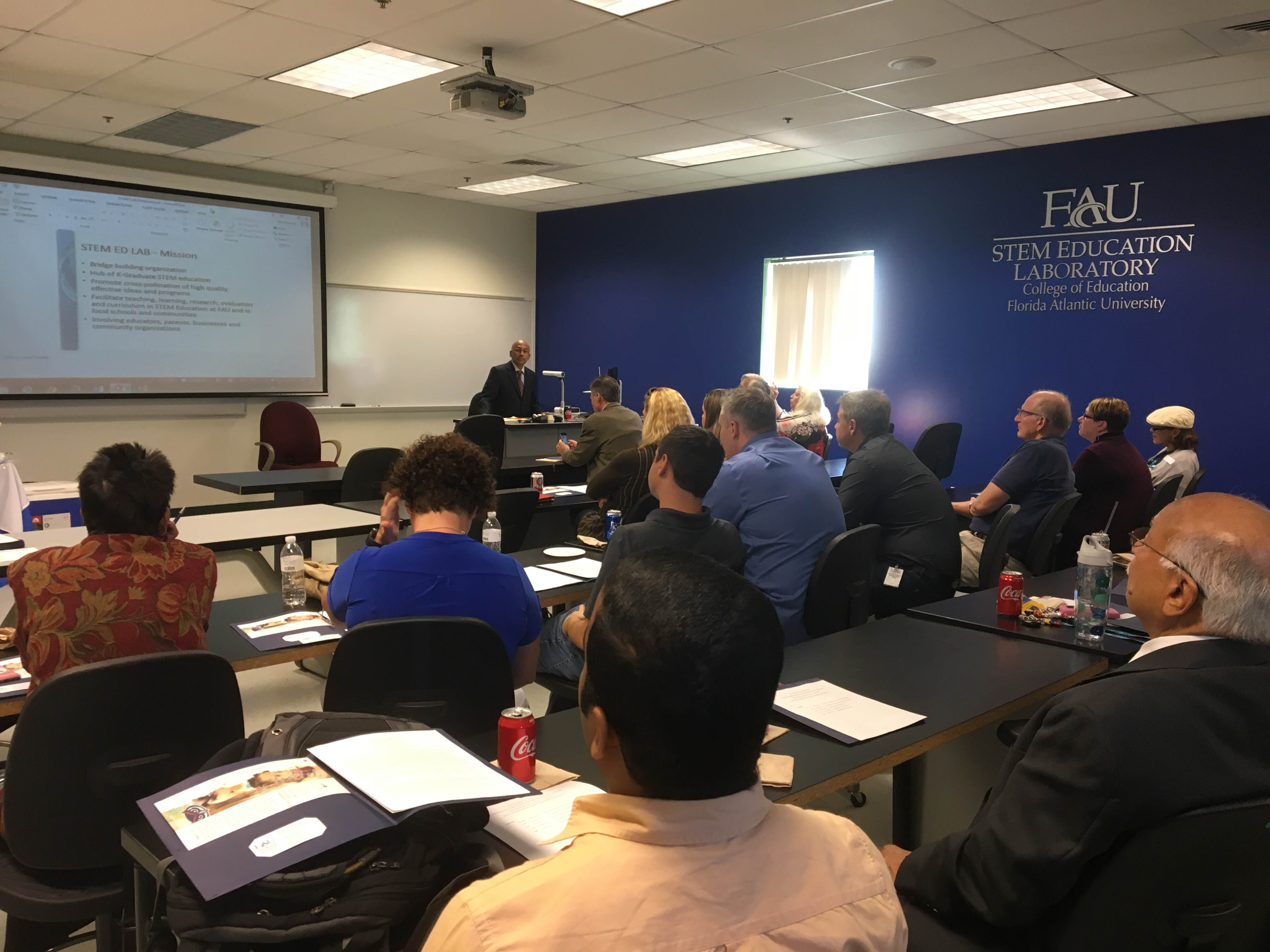STEM Education Laboratory
Director’s Message
Science, technology, engineering and mathematics education often referred to as STEM education is a matter of national importance. STEM education involves teaching and learning of concepts found in science, technology, engineering, and mathematics, from K through post-graduate levels. It should be noted that the STEM Education Lab identifies STEM as inclusive of subject disciplines with overlapping interests such
 as the arts, reading, social studies, architecture, nursing, medicine, etc. According to U.S. President Barack Obama (2010), our nation’s “leadership tomorrow depends on how we educate our students today – especially in science, technology, engineering, and mathematics.” As the STEM Education Coalition (n.d.) posits “our nation must expand the capacity and diversity of the STEM workforce pipeline to prepare more students for the best jobs of the future that will keep the U.S. innovative, secure and competitive”. In the 1950s, during the height of the Cold War, U.S. education felt threatened by the Soviet Union launching Sputnik. In 2023, about seven decades later, U.S. education still feels threatened, not necessarily by Russia, but by a lack of adequate education in STEM resulting in a workforce quite inadequate to compete successfully in a highly competitive global economy. The observation made by the Hart-Rudman Commission in 1999 that one of the “major problems faced by the education system is the insufficient number of students opting to enter science and technology fields, --- a shortage of personnel with technical skills already exists today in government, in the military, and in industries critical to national security” (n.p.) still holds true two decades later.
as the arts, reading, social studies, architecture, nursing, medicine, etc. According to U.S. President Barack Obama (2010), our nation’s “leadership tomorrow depends on how we educate our students today – especially in science, technology, engineering, and mathematics.” As the STEM Education Coalition (n.d.) posits “our nation must expand the capacity and diversity of the STEM workforce pipeline to prepare more students for the best jobs of the future that will keep the U.S. innovative, secure and competitive”. In the 1950s, during the height of the Cold War, U.S. education felt threatened by the Soviet Union launching Sputnik. In 2023, about seven decades later, U.S. education still feels threatened, not necessarily by Russia, but by a lack of adequate education in STEM resulting in a workforce quite inadequate to compete successfully in a highly competitive global economy. The observation made by the Hart-Rudman Commission in 1999 that one of the “major problems faced by the education system is the insufficient number of students opting to enter science and technology fields, --- a shortage of personnel with technical skills already exists today in government, in the military, and in industries critical to national security” (n.p.) still holds true two decades later.
To improve STEM education, we must prioritize our efforts on changes that produce fruitful outcomes. Experience tells us that “reinventing the wheel” and maintaining status quo may not be the right solution. Instead, we need to explore solutions that are feasible and productive in improving STEM education in our schools and colleges. It is imperative that practical solutions to problems facing STEM education are developed and implemented. The College of Education at Florida Atlantic University is strategically positioned to lead STEM education reform in South Florida.
Thank you.
David Devraj Kumar
